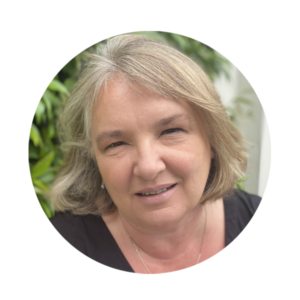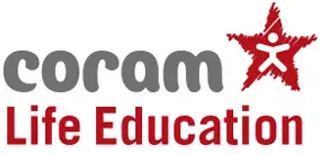For this session we welcomed Dr. Dasha Nicholls to share her knowledge and insights into eating disorders, specifically exploring the signs and impact of disordered eating and guidance on how best to respond. Dr. Dasha Nicholls is Clinical Reader in Child Psychiatry at Imperial College London and Honorary Consultant Child and Adolescent Psychiatrist at Central and North West London NHS Trust. Her research and clinical work is concerned with feeding disorders, eating disorders and higher weight in children and adolescents, with a particular focus on early intervention.
Slides from the session
ACAMH Members can receive a CPD certificate, simply email and let us know the date and time that you watched the recording.
About the ‘Ask the Expert’ sessions
This FREE ‘Ask the Expert’ online event is exclusively for Teachers, and offers insights into the latest evidence-base around anxiety in children & adolescents. They are brought to you as part of an exciting new partnership between The Association for Child and Adolescent Mental Health (ACAMH) and Coram Life Education (CLE), two charities who are dedicated to making a difference to the mental wellbeing of children and young people.
Following our pilot events in Autumn 2021 / Spring 2022, we have a series of ‘Ask the Expert’ events over the coming year, to help close the knowledge gap in a range of topics that now form part of the statutory Relationship, Sex and Health Education (RSHE) curriculum. We think it is important to help equip teachers with knowledge in areas that may be less familiar to them, which is grounded in academic rigour.
Our ‘Ask the Expert’ sessions are primarily aimed at knowledge building, we will be working on other initiatives to help evolve pedagogical approaches based on the evidence we share at these ‘Ask the Expert’ events.
About the event
Around 1.25 million people in the UK suffer from eating disorders. These disorders can cause serious harm, both physically and emotionally, and they have the highest mortality rate of any mental illness. Early diagnosis, intervention and treatment is critical.
As anchor institutions in society, schools play an important role in identifying, referring and supporting pupils who may be at risk of developing eating disorders. As teachers, it is important to be aware of some of the clues, cues and signs of disordered eating behaviour, in order to better support children & young people who are experiencing difficulties in maintaining a healthy relationship with food.
Key Takeaways
- To identify the types of eating disorders and know how they differ from ‘normal’ concern about eating, weight and shape
- Recognise the early signs of disordered eating behaviour and how best to respond
- Understand the impact eating disorders may have on learning
- Know about the types of effective psychological treatments that are available
- Know who to contact and where to turn if you need more help
Resources
Eating disorders
Eating disorders: an introduction to anorexia nervosa, bulimia nervosa and other eating disorders. From this topic guide, you can find the latest blogs, events, publications, videos and podcasts.
Boys get Anorexia too
6-minute film, Jenny Langley, author of ‘Boys Get Anorexia Too’ talks about her experience when her son developed an eating disorder.
Understanding Eating Disorders
8min film with Dr. Dasha Nicholls, learn details on the different kinds of Eating Disorders.
In Conversation… Eating Disorders with Dr. Dasha Nicholls
In this podcast, Dr. Dasha Nicholls talks about eating and feeding disorders in children and young people.
Developments in Eating Disorders Research
As everyone’s thoughts are dominated by the impact of COVID-19 on mental health and wellbeing, it seems pertinent to start by thinking how people with or at risk of eating disorders may have been affected. Research suggests that the impacts differ according to the type of eating disorder concerns and behaviours. By Dr. Dasha Nicholls
Other FREE Events
Visit our Teacher Hub for a host of free resources and events.
About the Speakers

Dr. Dasha Nicholls is Clinical Reader in Child Psychiatry at Imperial College London and Honorary Consultant Child and Adolescent Psychiatrist at Central and North West London NHS Trust. Her research and clinical work is concerned with feeding disorders, eating disorders and higher weight in children and adolescents, with a particular focus on early intervention. Until 2018 she was Joint Head of the Feeding and Eating Disorders service at Great Ormond Street Hospital. She led development of the Managing Medical Emergencies in Eating Disorders guidance (2022), was a member of the NICE Guideline Committee and NICE quality standards committee for eating disorders, as well helping develop the commissioning guidance for children and young people’s eating disorders services (CYP EDS). She co-led the National Whole Team training for CYP EDS in 2017/18.
Dasha is also the Clinical and Strategic Director for National Audits and Research at the Royal College of Psychiatrists, and past chair of the Eating Disorders Faculty. She is the past President of the Academy of Eating Disorders, and instigated development of the British Eating Disorders Society. She co-founded the Child and Adolescent Psychiatric Surveillance System (CAPSS) for research into rare disorders and events in child mental health.

Coram Life Education is the leading provider of relationships, health, wellbeing, and drugs education to almost half a million children across the UK, delivered under the strapline ‘Helping Children Make Healthy Choices’. Trained Educators use evidence-based, interactive, creative methods and resources to stimulate curiosity and imagination amongst children in 1 in 10 English and Scottish primary schools (2,041 schools).
Our memorable life skills sessions are currently delivered as ‘Life Base’ in school or as ‘SCARF Live Online‘ sessions via Zoom. Coram Life Education takes a three strand approach addressing children’s knowledge, skills and attitudes, and programmes are aligned with the National Curriculum (Citizenship, PSHE Education), covering all Key Stages. Coram Life Education helps schools meet their statutory requirements for Relationships and Health Education, children’s Spiritual, Moral, Social and Cultural development, and Ofsted inspection criteria for personal development, behaviour and welfare. Coram Life Education’s programmes are also aligned with Scotland’s Curriculum for Excellence. Recognising the role of the community and home life in influencing children’s choices, we design our programme with schools and deliver special sessions and assemblies for parents and carers to amplify our effectiveness.


